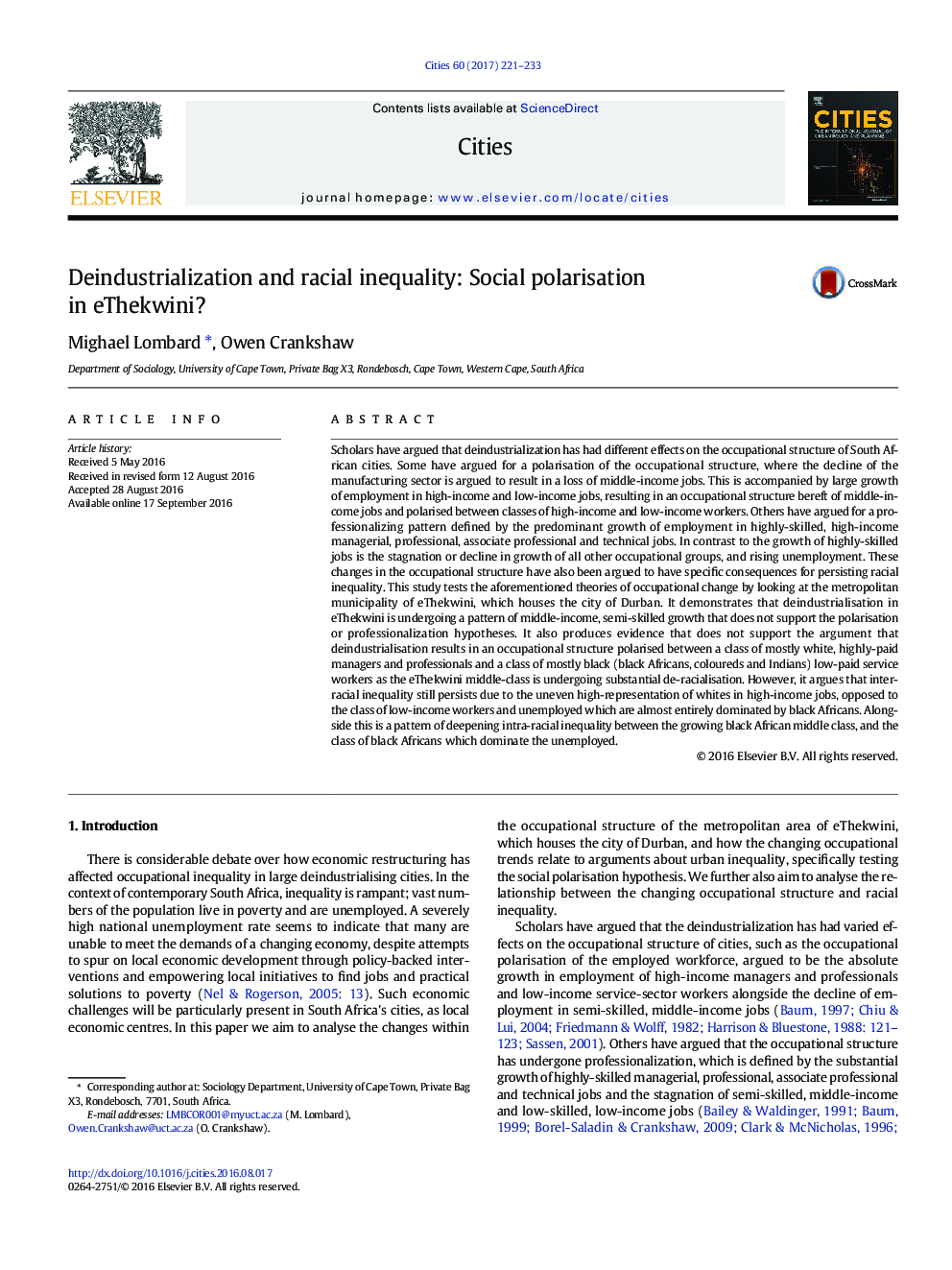| کد مقاله | کد نشریه | سال انتشار | مقاله انگلیسی | نسخه تمام متن |
|---|---|---|---|---|
| 6481281 | 1377638 | 2017 | 13 صفحه PDF | دانلود رایگان |
- There has been relative decline of employment in eThekwini's manufacturing sector.
- Employment growth since 1980 has mostly been in semi-skilled, middle-income work.
- The occupational class structure is thus neither polarised nor professionalized.
- The workforce in middle and high-income jobs is becoming racially mixed.
- Yet racial inequality persists between whites and unemployed/working class Africans.
Scholars have argued that deindustrialization has had different effects on the occupational structure of South African cities. Some have argued for a polarisation of the occupational structure, where the decline of the manufacturing sector is argued to result in a loss of middle-income jobs. This is accompanied by large growth of employment in high-income and low-income jobs, resulting in an occupational structure bereft of middle-income jobs and polarised between classes of high-income and low-income workers. Others have argued for a professionalizing pattern defined by the predominant growth of employment in highly-skilled, high-income managerial, professional, associate professional and technical jobs. In contrast to the growth of highly-skilled jobs is the stagnation or decline in growth of all other occupational groups, and rising unemployment. These changes in the occupational structure have also been argued to have specific consequences for persisting racial inequality. This study tests the aforementioned theories of occupational change by looking at the metropolitan municipality of eThekwini, which houses the city of Durban. It demonstrates that deindustrialisation in eThekwini is undergoing a pattern of middle-income, semi-skilled growth that does not support the polarisation or professionalization hypotheses. It also produces evidence that does not support the argument that deindustrialisation results in an occupational structure polarised between a class of mostly white, highly-paid managers and professionals and a class of mostly black (black Africans, coloureds and Indians) low-paid service workers as the eThekwini middle-class is undergoing substantial de-racialisation. However, it argues that inter-racial inequality still persists due to the uneven high-representation of whites in high-income jobs, opposed to the class of low-income workers and unemployed which are almost entirely dominated by black Africans. Alongside this is a pattern of deepening intra-racial inequality between the growing black African middle class, and the class of black Africans which dominate the unemployed.
Journal: Cities - Volume 60, Part A, February 2017, Pages 221-233
